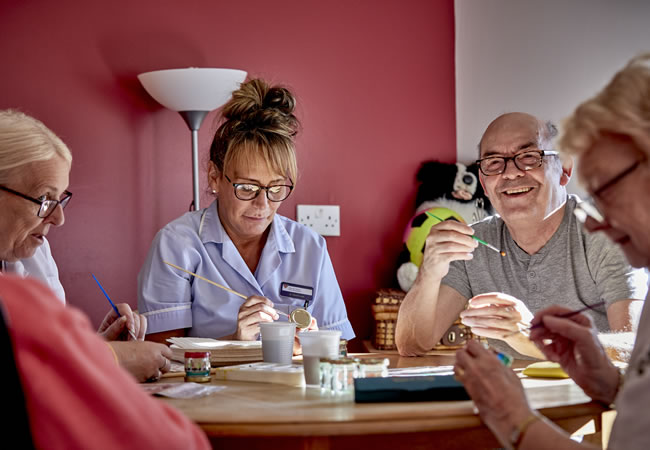It can be very difficult suddenly realising that your parent is struggling with their everyday life. It can bring up a whole range of emotions, from guilt to hopelessness. But aging is inevitable, and you must think about what the next steps are when considering your elderly parents. You will notice the signs that they are struggling, maybe they will seem more forgetful, the fridge may be full of out-of-date food, they may take less care with their personal appearance and hygiene, they may have bumps or bruises which they shrug off when you ask about them. It can be hard to spot the signs of deterioration if you see them regularly, but someone who has not visited for a while maybe better placed to notice any changes. It can often be a combination of things that make you realise that they may need elder care.
How to Discuss The Future With Your Loved Ones
Having a conversation with your elderly parents before you reach a critical point can be helpful. Having to make decisions in a crisis makes the decision more stressful and less thought out. Doing some preparation for when the time comes will help to reduce the stress associated with this difficult time. Uncomfortable though the conversation may be, it is better to have open communication about the future, than never to discuss it. Don’t impose your views on your loved ones, but rather openly ask them what they would like to do should they become unwell or struggle to live independently. They may surprise you, they may have already considered their options. Getting an idea of what their sticking points might be will be a big help. Perhaps they like the idea of the company in a residential elderly care home, perhaps they think having someone pop in once a day may not be that terrible. Start by asking them what their thoughts are, and then see where the conversation goes.
Common Health Issues Facing The Elderly
Different medical health conditions will alter the available options. Some people suffer from dementia as they age and maybe happier and safer in a residential care home, many are tailored specifically to support those people with dementia. Others may just become frail and manage with some support coming into their home throughout the day. Elderly people can become unsteady on their feet, and falling may cause injuries. Whilst falls can’t always be avoided in a care home, the response time after a fall is much quicker, and help can be summoned.
Different Elder Care Options
There are different eldercare services available for when the time comes. You need to understand the options and the benefits that each service brings.
-
Home or Domiciliary Care
Home care is when specialist carers come into the home at regular intervals and assist with a variety of tasks. This can vary from personal care, to help with the shopping. This can be a good solution where the level of care needed is not too high.
-
Live-in Care
Live-in care is where someone lives in the house with a senior person. This can be a good option where home care isn’t providing quite enough support, and the individual does not want to move from their house. Although this can prove extremely expensive and isn’t often the best long-term solution.
-
Residential Care
Residential care involves moving into a care home centre where you will have your own private bedroom or self-contained apartment, and you will be supported in your daily living. A care home will provide home-cooked meals, laundry, activities, and caring company throughout the day. This can be an excellent option for those who are lonely or older people that have more complex needs.
What to do if You Think Your Loved One Needs Help
If you are concerned about your loved one, do seek help. Speak to their GP about your concerns. Contact your local care home or home care company and social worker, the people who work in social care are very experienced and will give you advice and support to help you make the right decision for your loved one’s future.
Choosing a Care Home or Home Care Provider
If you think that home care is the best step, you will need to find a home care provider close to your parents’ home. They will put together a package that will be designed to cater to your parents’ needs. If you have decided that the best elderly care option is a care home then you have more flexibility over the location. Many people move their parents near to their homes so that they can visit frequently. If your parent has many friends in their local area, then they may be happier moving into a care home in their local area.
When you have decided on the location then the best thing to do is arrange a visit. Home managers will be able to answer your questions and show you around the care home. At St Philips Care our home managers know what a difficult time this can be for families, and they are always available for advice and support for both you and your loved ones.

